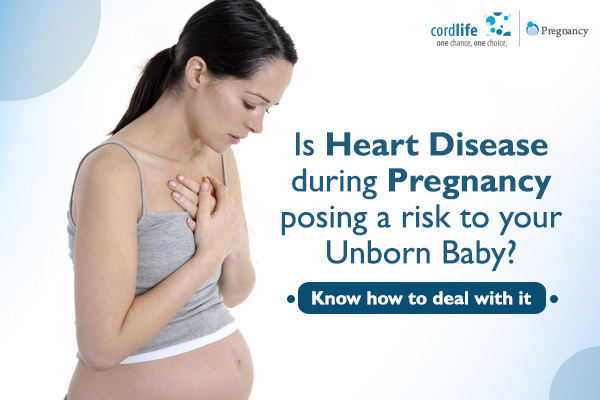Table of Contents
- But, it’s Important to Know How Pregnancy Affects Heart?
- So, What Causes Heart Diseases and Other Heart Disorders During Pregnancy?
- What are Heart Problems and How Does It Affect Pregnancy?
- Narrowing of the Aortic Valve
- Hole in the Upper and Lower Chambers of the Heart
- Rhythm Issues in the Heart
- What Preventive Measures Can Be Taken to Deal With it?
Women of childbearing age suffer from an increased risk of cardiovascular diseases (CVD) during pregnancy. In fact, up to 4% of pregnancies have cardiovascular complications, giving rise to several changes in the maternal circulation, which may not positively affect the heath of the mother and the unborn baby.
But, it’s Important to Know How Pregnancy Affects Heart?
During pregnancy, there are several changes taking place in a would-be-mother’s heart and blood vessels, that exerts additional pressure on her body and works harder to provide the all-essential nutrients and oxygen to nurture the life growing inside her. Particularly during the first trimester, the blood volume in pregnant body increases by 40 to 50% and tends to remain high. This increase in the amount of blood with the progression of the pregnancy makes the heart pump more every minute. In fact, abrupt changes in the blood flow at the time of child birth, adds up to the heart’s load, which can turn out to be severe for the mother-in-labour.
These changes may be normal from pregnancy to labour, but pregnancy with this kind of heart is risky.
Unfortunately, heart disease is one of the leading causes of death, during pregnancy
So, What Causes Heart Diseases and Other Heart Disorders During Pregnancy?
A would-be-mother’s chances of developing a congenital heart disease and other heart disorders is due to some of the pre-existing common lifestyle disorders like smoking, consuming alcohol, stress, lack of physical activity, and obesity and medical conditions like diabetes and hypertension (pulmonary hypertension or high blood pressure that affects the lungs and the right side of the heart).
What are Heart Problems and How Does It Affect Pregnancy?
That said, these health and lifestyle conditions leads to:
Narrowing of the Aortic Valve
(Opens to allow blood to leave the heart from the left ventricle through the aorta and the body) In which, the placenta (essential for providing the oxygen and nutrients to the growing baby and removes the waste materials from the baby) does not receive sufficient amount of blood
Hole in the Upper and Lower Chambers of the Heart
In which, a fair amount of blood flow from the left of the heart flows back to the right, thus straining the heart. In many cases causing death of the mother at the time of childbirth.
Rhythm Issues in the Heart
Often diagnosed during the third trimester of pregnancy, a would-be-mother is more likely to deliver low birth weight baby, and pre-term labour.
Therefore, heart conditions as mentioned-above and congenital heart disease in expectant moms may not just put the pregnant woman at a slightly higher risk of a miscarriage, a premature birth or a low-birth-weight baby and make her feel not just overtired and dizzy, but she might also find it difficult to breath.
What Preventive Measures Can Be Taken to Deal With it?
After getting diagnosed, knowing that a pregnant mother is suffering heart disease can be emotionally devasting. She may not just worry about her health but about the health of her baby too. The situation might be bleak and sometimes some would-be-mommies might even consider ending the pregnancy. But that’s not going to increase the chances of the mother’s survival.
So, to cope up with the condition medical intervention is necessitated:
Frequent Pre-natal Visits
In the pre-natal visits to the doctor, besides checking that the pregnancy is healthy and progressing properly along with the body weight, the medical team also ensures that the would-be-mother’s heart condition is not affecting her pregnancy in anyway. Observing the severity of the condition of the heart in a pregnant mother, she might be advised to see the cardiologist more frequently (twice or thrice in a week) and undergo echocardiogram (echo) and electrocardiogram.
Routine Ultrasounds
Is needed to monitor the baby’s growth and ensure the baby’s growth is on track. Some special ultrasounds can determine the foetal heart problems at an early stage.
Watching the Contractions Carefully at the Time of Childbirth
To reduce the chances of heart attack often leading to the death of the pregnant woman. In many cases C-section delivery is necessitated.
This proves pregnancy comes with its own set of challenges. And taking care of the smallest concerns during this time, may reduce the risks of pregnancy.
